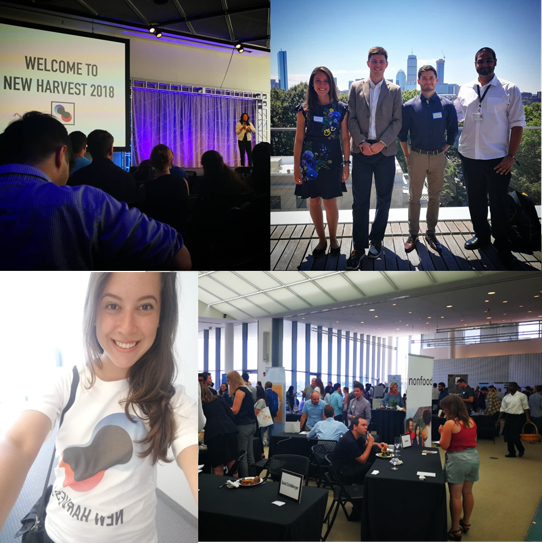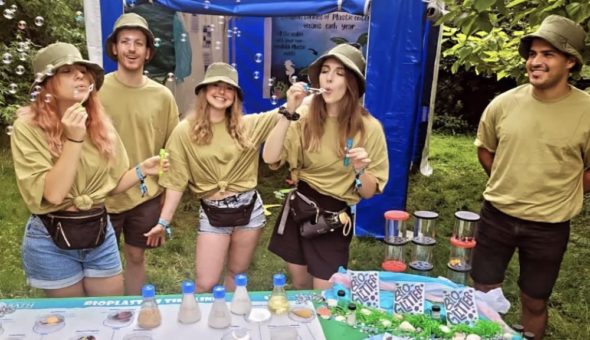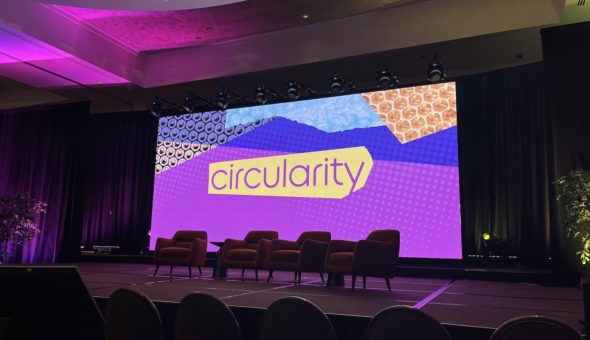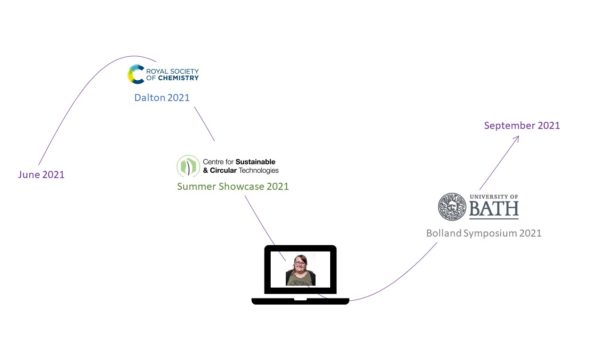My name is Jessica Pinheiro de Lucena-Thomas and I am a Marie Curie FIRE PhD Fellow at the University of Bath. I am in my second year at the CSCT working towards my PhD on “Organoid Expansion Bioreactor Development” with Dr Marianne Ellis, Dr Paul De Bank and Dr Kim Luetchford. During my PhD, I will design a bioreactor to produce miniature tumours (organoids) in large scales for drug testing in the pharmaceutical industry.
After two highly productive days attending New Harvest Conference 2018 with my colleagues Scott Allan, Jamie Courtenay and Travis Callue and my supervisor Marianne Ellis, it is time to share why I attended this conference about cellular agriculture and what I learnt there.
Cellular agriculture is a new field, still at an early stage, which aims to supply products conventionally made from animals in new forms that reduce or eliminate the need for the animal itself. The main examples include cultured meat, milk, egg white and leather.
As a chemical engineer, I enjoy working on designing processes, including reactors, ultimately turning ideas into something real. Before starting a PhD, my work was focussed towards big chemical industries with large inputs and outputs. Now, the difference is that I am working with cells in tissue engineering, and the dimensions are much smaller and the bioprocesses are more complex. The first time I heard about cellular agriculture was from my supervisor Marianne Ellis last year. She has worked with New Harvest since 2012 and has supervised students investigating bioreactors for cultured meat. Now, I hear about it often in my lab meeting discussions from Scott Allan, a CSCT PhD student sponsored by New Harvest.
Instead of just listening, I decided to get more involved with cultured meat research by attending the New Harvest conference. This is the world's first conference dedicated to cellular agriculture and it was a great opportunity to absorb as much information as I could directly from the source.
The New Harvest 2018 Conference was held from the 20th until the 21st of July 2018 at the MIT Media Lab in Cambridge, Massachusetts, USA. During the two full days of programming, I experienced the newest research in cell cultured products and applications in food, materials, and additional industries. The area of cellular agriculture is evolving fast and the potential benefits are huge, especially in terms of sustainability. Cultured meat, for example, has the potential to reduce the use of water and land, the emission of greenhouse gases and eutrophication, compared to traditional livestock meat production.
Through presentations and panel discussions, the conference addressed not only the technical challenges, as I was expecting, but also challenges in ethics and consumer acceptance, openness vs IP, regulatory aspects and social and political impacts of cellular agriculture as a new and possible disruptive technology. This made me realise how complex a topic this field is.
The conference was mind-blowing for me. It was the first conference in which I saw so many people from different backgrounds (engineers, scientists, philosophers, journalists, regulatory and policy agents, farmers, entrepreneurs, investors, donors, innovators) interacting with each other, sometimes with opposite opinions, but all working for the same purpose: create the new future of food!
Respond



